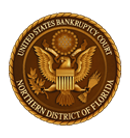DISCOVERY - GENERAL
- Before filing any motion related to discovery, counsel for the moving party shall confer with counsel for the opposing party in a good faith effort to resolve by agreement the issues raised, and shall file with the Court at the time of filing the motion a statement certifying that counsel has so conferred with opposing counsel and that counsel have been unable to resolve this dispute (“Certification”).
- Consistent with District Local Rule 7.1(B), the requirement for the moving party to “confer” within the meaning of this rule requires such party to at a minimum afford counsel for the non-moving party twenty-four (24) hours to respond, absent extraordinary circumstances. Counsel for the moving party must make at least two (2) attempts to contact the non-moving party, with a minimum of one (1) telephonic attempt, before filing a motion without having actually conferred. In such an event, the Certification shall identify each attempt to reach the non-moving party, identifying the time of the attempt and the means employed for each attempt, as well as any applicable extraordinary circumstances.
- As a general rule, exchanges of email or other correspondence alone do not constitute a proper conferral within the meaning of this rule.
- The failure of a moving party to properly confer prior to filing a discovery motion pursuant to this rule may subject the filer to sanctions.
- The refusal of a non-moving party to engage in a conferral, when the moving party has attempted to confer in good faith, may subject the non-moving party to sanctions in the form of fees and costs incurred in filing the motion.
- Motions to compel discovery pursuant to Bankruptcy Rule 7037 shall:
- Quote in full each interrogatory, question on deposition, request for admission, or request for production to which the motion is addressed;
- The objection and grounds therefore as stated by the opposing party; and
- The reasons such objection should be overruled and the motion granted.
- For the guidance of counsel in preparing or opposing contemplated motions for protective order, related to the place of taking a party litigant's deposition, or the deposition of the managing agent of a party, it is the general policy of the Court that a nonresident plaintiff may reasonably be deposed at least once in this District during the discovery stages of the case; and that a nonresident defendant who intends to be present in person at trial may reasonably be deposed at least once in this District either during the discovery stages of the case or within a week prior to trial. A nonresident, within the meaning of this rule, is a person residing outside the Northern District of Florida.
Advisory Committee Notes
2023 Amendment
The amended rule includes only stylistic changes for purposes of internal consistency and/or to correct grammatical errors.
2020 Amendment
The amended rule includes both stylistic and substantive changes. The format of subdivisions is changed to maintain a consistent style across all rules. The discussion of what constitutes a proper conferral prior to the filing of a motion is substantially expanded to guide practitioners in the District.
